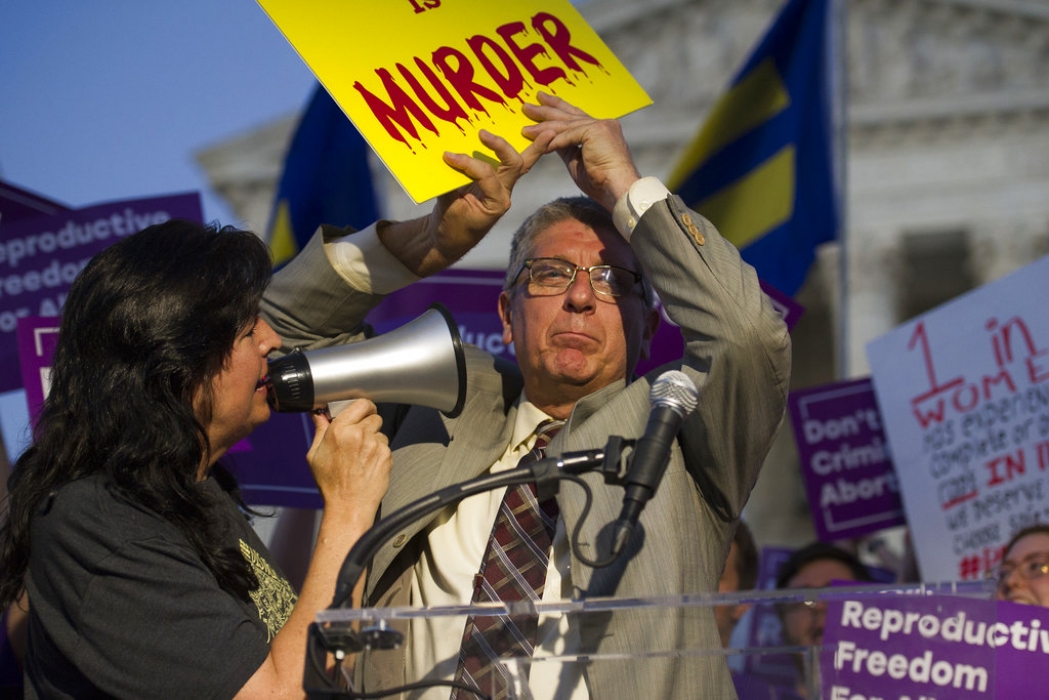The one-sentence Supreme Court decision in Hirsh v. City of Atlanta, 495 U.S. 927 (1990), denied an application by the anti-abortion group Operation Rescue to stay an injunction issued by a Georgia court prohibiting its members from demonstrating within 50 feet of an abortion clinic and imposing further restrictions upon them.
Injunction prohibited protests near an abortion clinic
The Operation Rescue members had argued that the injunction violated their First Amendment right to free speech. The Georgia Supreme Court, however, upheld the injunction as a regulation designed to protect the rights of Atlanta’s citizens to obtain medical services.
Court looked at First Amendment case parallels
In a concurring opinion, Justice John Paul Stevens asserted that this case could not be distinguished from Village of Skokie v. National Socialist Party of America (Ill. 1978), which involved a march by uniformed Nazis, on the basis of the content of the speech. He, however, continued, “It is entirely proper . . . to draw a distinction between injunctive relief imposing time, place, and manner restrictions upon a class of persons who have persistently and repeatedly engaged in unlawful conduct” from one “that constitutes a naked prior restraint against a proposed march by a group that did not have a similar history of illegal conduct in the jurisdiction where the march was scheduled.”
Justice Anthony M. Kennedy, in a dissent joined by William J. Brennan Jr., Thurgood Marshall, and Antonin Scalia, argued that the Court was required to treat this case as it did in Skokie.
State court upheld restrictions
The Supreme Court of Georgia subsequently heard the case in Hirsh v. City of Atlanta and Williams v. City of Atlanta (1991) and upheld the restrictions imposed by the lower court. The Supreme Court of Georgia pointed to Operation Rescue’s persistent violations of the law and saw the injunction as narrowly tailored to meet such interests, consistent with reasonable time, place, and manner restrictions. Two dissenting justices thought the restrictions were too broad.
John Vile is a professor of political science and dean of the Honors College at Middle Tennessee State University. He is co-editor of the Encyclopedia of the First Amendment. This article was originally published in 2009.

